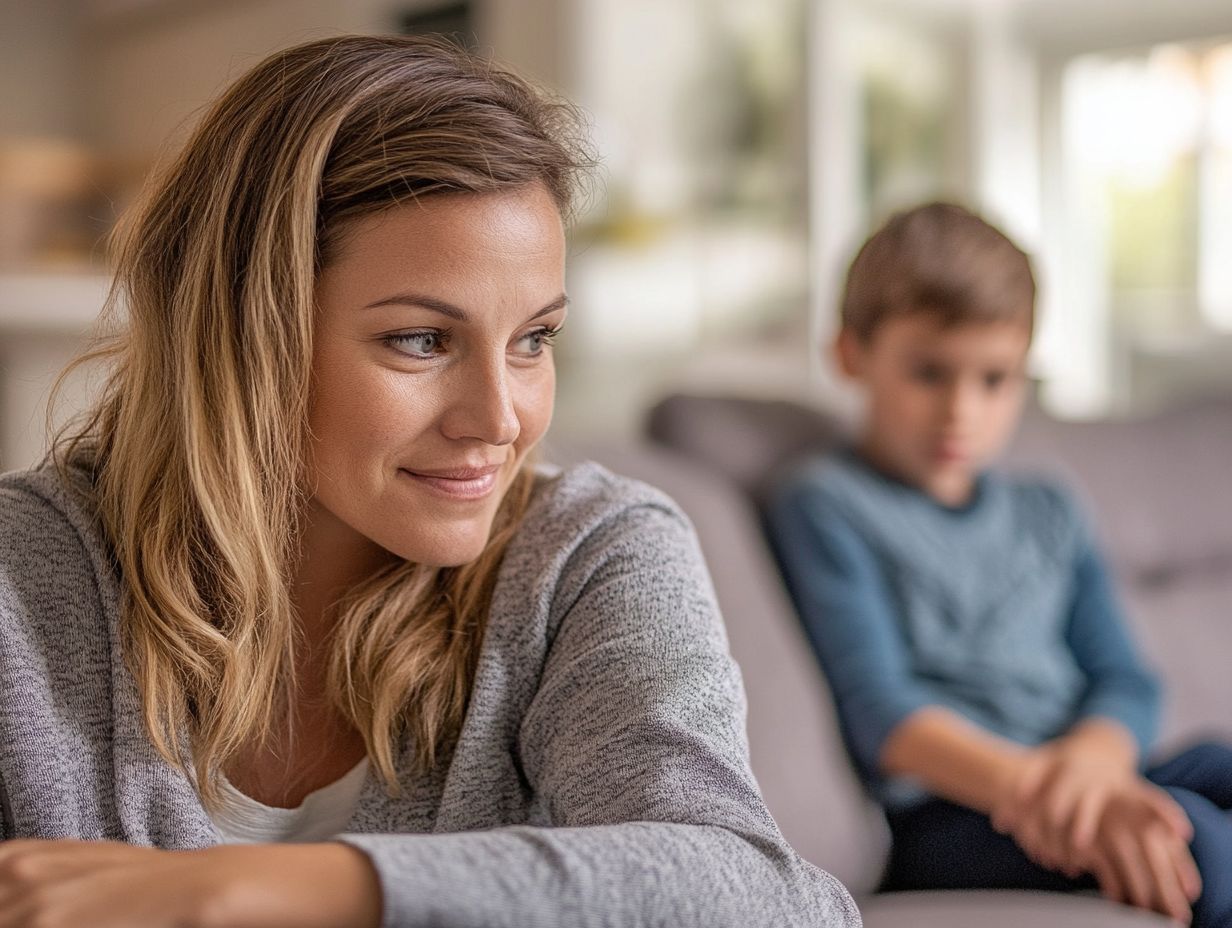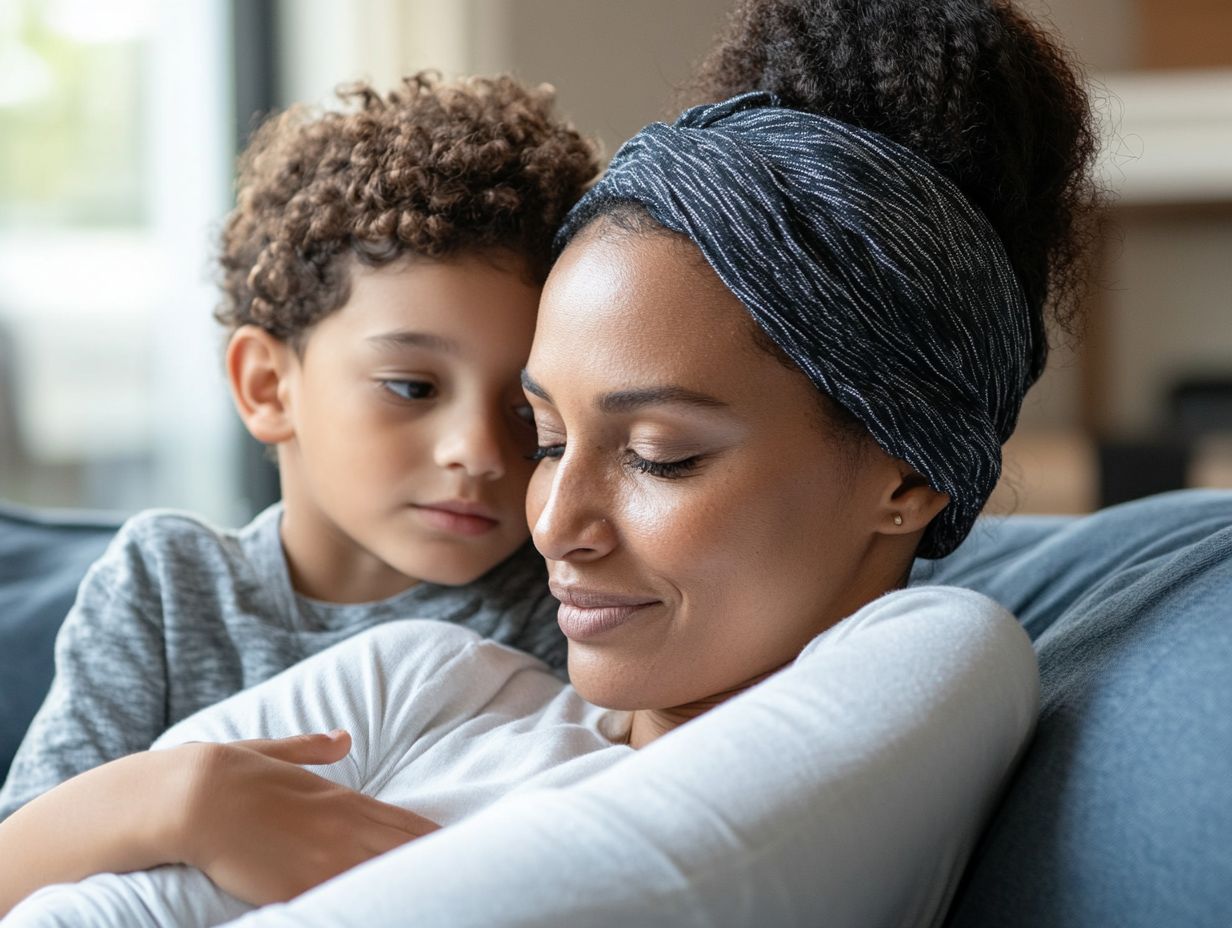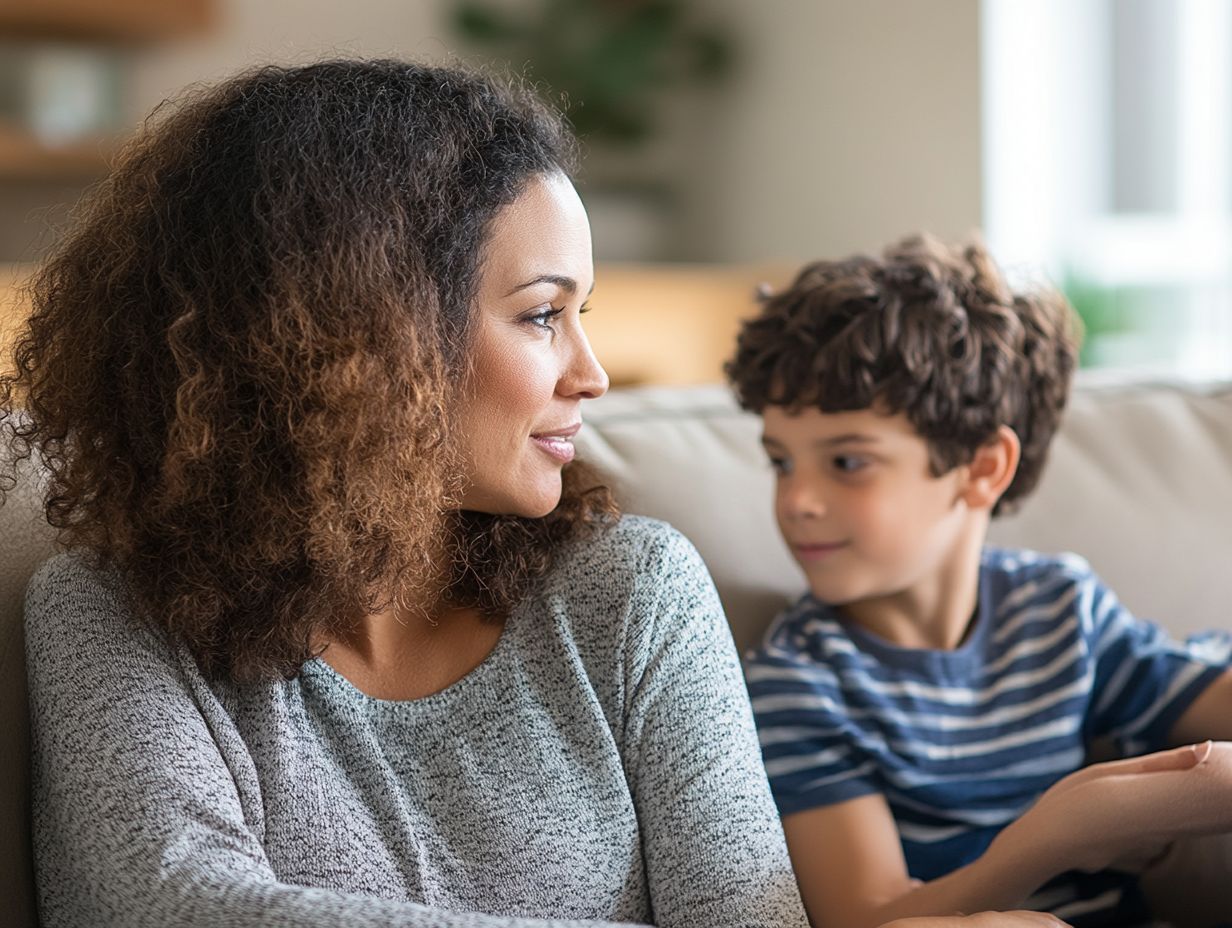Receiving a cancer diagnosis is challenging, and it can be especially difficult for parents concerned about its impact on their children. Understanding how to help your children cope with a cancer diagnosis involves recognizing their emotional needs, maintaining open communication, and providing stability through supportive care and family support.
Children’s reactions vary by age, with younger ones sensing anxiety and older kids grappling with fear and anger. It’s important to explain the diagnosis in simple terms, addressing their emotions and encouraging questions through open communication and honest conversations.
To support your children during treatment, maintain routines to create normalcy, involve them in care decisions by discussing treatment options, and seek external help from teachers, child life specialists, or support groups.
By prioritizing your own self-care and managing stress effectively, you can better support your children emotionally, improve family dynamics, and foster a nurturing environment.
Key Takeaways:
Understanding the Impact of a Cancer Diagnosis on Children

A cancer diagnosis impacts children by causing confusion, fear, and anxiety.
Children react differently based on age and may struggle to understand the diagnosis and its implications, requiring age-related suggestions.
Parents and caregivers should provide emotional support and maintain open communication to help children express feelings and ask questions, fostering trust-building.
Age-Appropriate Reactions and Concerns
Children’s reactions to a cancer diagnosis differ by age.
Toddlers sense parental anxiety, leading to insecurity, highlighting the importance of creating a reassuring hospital environment.
School-age children grasp illness concepts and may feel confusion or anger due to disrupted routines, needing coping strategies for emotional changes.
Teenagers experience fear and frustration as they face illness and adolescence challenges, requiring anxiety management techniques and peer support.
Pediatric psychologists support emotional adjustment in children during this period by helping them develop coping mechanisms and understanding the long-term effects of a parent’s cancer diagnosis.
Communicating with Your Children About Your Diagnosis
When communicating with your children about your cancer diagnosis, provide accurate and age-appropriate information. Explain the diagnosis clearly, using simple terms that they can understand.
Encourage your children to ask questions and express their feelings. Reassure them that their emotions are valid and important, providing them with emotional support during this challenging time.
Maintain open communication by regularly updating them about your condition and treatment. Use resources like books or counseling, and discuss the medical situation to support their understanding.
Explaining Cancer in a Way They Can Understand
Cancer is when some cells in the body grow uncontrollably, like rowdy kids who don’t follow rules.
Healthy cells act like well-behaved kids who work together, but cancer cells disrupt the body’s harmony.
Using simple analogies and visual aids can help children understand how cancer affects the body, serving as a cancer guide.
Addressing Their Emotions and Questions
Addressing a child’s emotions and questions about cancer involves listening fully to their concerns, validating their feelings, and encouraging open communication.
Pediatric psychologists can support this process by teaching coping strategies and helping children manage emotions effectively, ensuring a focus on emotional well-being.
Active listening and empathy create a supportive environment for children facing cancer-related fears.
Supporting Your Children During Your Treatment

Supporting your children during your cancer treatment involves open communication, maintaining routines to create a sense of normalcy during treatment, and seeking external support.
-
Explain the treatment process to your children in age-appropriate language to reduce their anxiety, providing them with accurate information about the treatment plan.
-
Maintain regular family routines to provide a sense of stability and normalcy, helping manage coping difficulties and enhancing quality of life.
-
Involve teachers, counselors, and support groups to help your children cope with emotional changes and ensure school-related events are not neglected.
-
Reassure your children of your love and care continuously.
Managing Their Feelings and Fears
Managing children’s feelings and fears about a parent’s cancer treatment involves open communication, relaxation techniques, and peer connections, utilizing relaxation therapy to support emotional well-being.
Use relaxation therapy like deep breathing to help children manage stress and create a supportive environment for open discussions about physical changes and emotional needs.
Encourage peer support to provide children with comfort and shared experiences.
Addressing siblings’ emotional needs equally is crucial for family support.
Involving Them in Your Care
Involving children in your cancer care helps build trust and provides a sense of control, especially during medical appointments.
Involvement includes discussing treatment options and allowing children to choose comfort items for hospital visits.
Open communication about treatment fosters enablement and understanding, enhancing the supportive care they receive.
This approach creates a supportive environment where children feel valued and included.
Self-Care for Parents with Cancer
Self-care for parents with cancer involves prioritizing physical health, mental wellness, and emotional support to manage treatment effects and maintain strength for parenting, ensuring caregiver support is available when needed.
Key self-care strategies include:
- Following a balanced diet to manage side effects and support emotional well-being
- Engaging in gentle exercise
- Seeking counseling or support groups
- Allocating time for rest and relaxation
Effective self-care helps parents maintain energy and emotional balance to support their children effectively, positively impacting family dynamics.
Importance of Taking Care of Yourself
Taking care of yourself is crucial for maintaining emotional well-being, especially during cancer treatment.
Self-care ensures you can effectively support your family and manage your health.
Good self-care helps maintain physical and mental health, which positively influences family dynamics.
Prioritizing self-care fosters a supportive environment and strengthens familial bonds.
Tips for Managing Stress and Emotions

Stress management tips include practicing relaxation techniques, engaging in mindfulness exercises, and maintaining social connections with the community.
Relaxation techniques, such as relaxation therapy, help manage stress by providing calm moments to recharge, supporting parents’ emotional well-being.
Mindfulness exercises, like meditation and deep breathing, enhance clarity and calmness, contributing to effective anxiety management.
Maintaining social connections offers emotional support and strengthens resilience, facilitating improved quality of life.
Seeking Additional Support for Your Children
Additional support for children of parents undergoing cancer treatment includes professional counseling and participation in support groups, both offline and online support options.
This support helps address children’s emotional needs, providing them with coping strategies during their parent’s treatment, enhancing their emotional support network.
Professional Counseling and Support Groups
Professional counseling and support groups provide a safe space for children and families to share experiences and emotions, fostering sibling support and social interaction.
Counseling enables individuals to express fears and anxieties related to a diagnosis, improving communication and emotional support.
Support groups offer practical tools for managing appointments and treatments, helping families feel more secure and understood, including discussions on long-term effects and treatment options.
Ways to Help Your Children Cope
To help children cope with a parent’s cancer diagnosis, parents should provide emotional support through open communication, age-appropriate activities, and maintaining routines.
Engaging in activities like art or journaling enables expression of feelings. Creating a safe space for sharing encourages children to discuss their thoughts and fears.
Reassurance through consistent routines and supportive presence strengthens family bonds and emotional well-being.
Frequently Asked Questions
How can I help my children understand my cancer diagnosis?

It’s important to be open and honest with your children about your diagnosis. Use simple and age-appropriate language to explain what cancer is and how it may affect you.
What can I do to ease my children’s fears about my cancer diagnosis?
Reassure your children of your ongoing cancer treatment and the support of a dedicated health care team.
Reassure your children that they are loved and that they are not responsible for your illness. Let them know that you are receiving medical care and that you have a plan to fight the cancer.
How can I support my children emotionally during this difficult time?
Engage with a pediatric psychologist to develop coping strategies for managing their emotions.
Listen to your children’s concerns and validate their feelings. Encourage them to express their emotions, and provide comfort and understanding. Seek professional help if needed.
What should I do if my child asks difficult questions about my cancer diagnosis?
Be honest and try to answer their questions as best as you can. If you don’t have an answer, let them know that you will find out and get back to them. It’s okay to not have all the answers.
How can I balance caring for my children while also managing my cancer treatment?
It’s important to ask for help from family and friends when needed. Consider reaching out to a support group or hiring a caregiver to assist with childcare.
Are there any resources available to help my children better understand my cancer diagnosis?
Yes, there are many resources available such as books, online articles, and support groups specifically for children coping with a parent’s cancer diagnosis. Your healthcare team can also provide recommendations.





